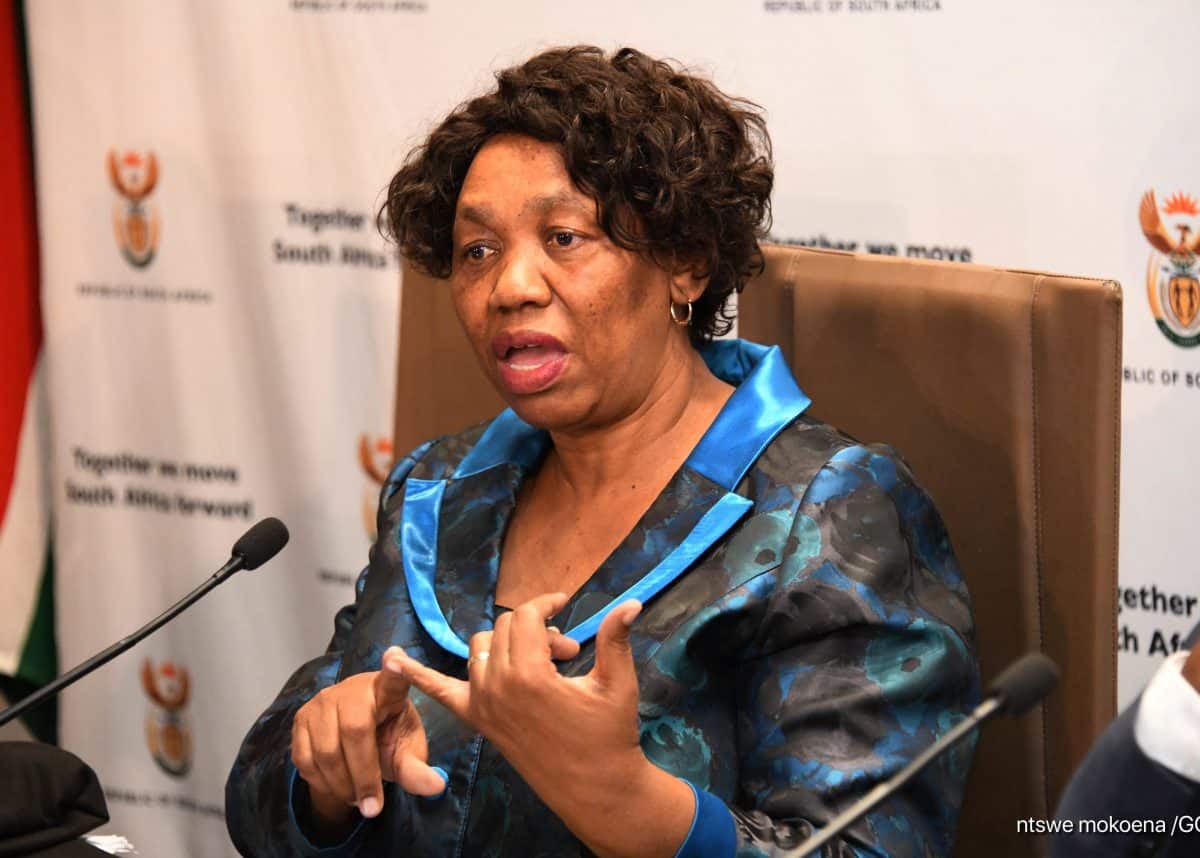45,000 examiners are expected to start marking the 2020 matric final exams on 4 January 2021.

Minister of Basic Education, Angie Motshekga, says the department intends to approach the North Gauteng High Court to address errors in its findings on the matric rewrite ruling, which are not inline with “education laws”.
Motshekga was on Thursday briefing the media on schools’ state of readiness for the 2021 academic year.
“The North Gauteng High Court ruling did not help either, because it did not deal with the credibility, integrity and fairness of the 2020 national senior certificate [NSC] examination, taking into account the compromise of the 2020 exams, resulting from the leaks of mathematics paper two and physical science paper two.
“The public must be reminded that any compromise of the NSC examinations, cannot only be justified through the number of the defaulting candidates, but mainly through the extent of the compromise. We must state upfront that the compromise was not localised, as was the case in 2016, but it was widespread, as all provinces were implicated.
“We must say, that some of the findings of the High Court, are discordant with applicable basic education legislative provisions; and some findings were made against the department on issues that were not even raised in the court papers. The legal team is exploring avenues that are to be used to address some of the errors we have picked up in the judgment,” Motshekga said.
READ MORE: Court cans Motshekga’s leaked matric rewrite plans
The minister said 1493 teachers died due to Covid-19, including workers, district and circuit officials, and Northern Cape MEC for education Mac Jack, adding “and we say to them may their souls rest in peace”.
Motshekga said the department hoped that all pupils had received their reports, stressing that schools were not allowed, by law, to hold back a learner’s report for any reason.
“We continue to receive complaints from parents whose children have not been given reports,” Motshekga said.
Motshekga said the department had to make certain adjustments to ensure compliance with Covid-19 regulations and that the Covid-19 pandemic “also brought into sharp focus the need for us to strengthen our psychosocial support services as a sector”.
Teachers are expected back at school on 25 January 2021 and pupils on 27 January 2021, Motshekga said.
“Since the Covid-19 pandemic, the [Department of Basic Education] has been monitoring the state of provinces on a weekly basis to ensure that provinces have systems in place to cope under the pandemic; and to provide support, where support is needed, to ensure smooth reopening and running of schools.”
For 2021, the department will work to ensure school readiness, ensure that it puts a “plug on gaps for curriculum recovery”, focus on health and safety and school admissions, on the latter, monitoring of number of pupils who return to school.
The department will also focus on providing support material and will assess how provinces plan to manage the curriculum in 2021 during the Covid-19 pandemic.
ALSO READ: Motshekga briefs media on schools’ readiness for 2021
The department will also focus on:
- Rollout of information, communication and technologies (ICTs);
- National school nutrition programme (NSNP);
- Provision of infrastructure, with emphasis on water, sanitation;
- Provision of learner transport; as well as
- School safety and psychosocial support.
In 2021, the department will receive 300,000 young employees in schools who will assist with addressing disruptions caused by the pandemic, Motshekga said.
“Education assistants will support teachers in the classroom, and provide extra support to pupils. General school assistants will help schools to comply with Covid-19 protocols, while ensuring that teaching and learning take place in a safe, secure and hygienic environment.”
In 2021, the department is expected to implement recovery annual teaching plans (ATPs) which are part of the three-year curriculum recovery plan following disruptions caused by the Covid-19 pandemic, Motshekga said.
“The recovery ATPs, focus mainly on the core and fundamental content knowledge, skills, attitudes and values required in each grade and subject, to ensure deep learning and content mastery as opposed to superficial learning. The recovery ATPs have been uploaded on the [department] website, and can be accessed with immediate effect.”
Motshekga said it was encouraging to note that according to the Trends in International Mathematics and Science Study (TIMSS) from 2003 to 2019, there was an improvement of 104 points for maths and 102 points for science in South Africa, with pupils in grade nine making an improvement but the department still wanted them to improve further.
The minister said she was disappointed that grade five had stayed the same, according to the study, and there was a need for the department to go back to the drawing board.
45,000 examiners are expected to start marking the 2020 matric final exams on 4 January 2021, while on 12 February 2021, the department is scheduled to present irregularities to Umalusi, the body for quality assurance, and on 22 February 2021 the results are expected to be released.
Motshekga also said the department was in talks with universities to accommodate 2020 matriculants.
[Watch Live] Minister Angie Motshekga briefs media on state of readiness for schools in 2021 https://t.co/ErVUXgqAjP
— South African Government (@GovernmentZA) December 17, 2020
For more news your way, download The Citizen’s app for iOS and Android.






